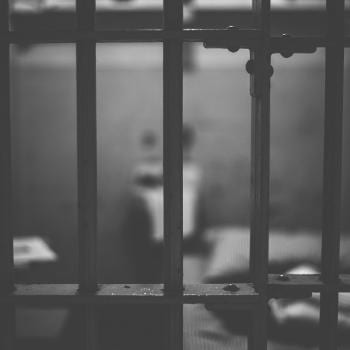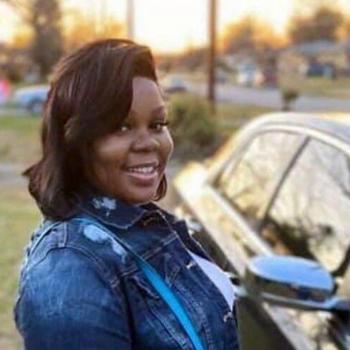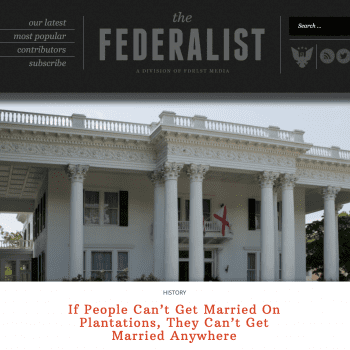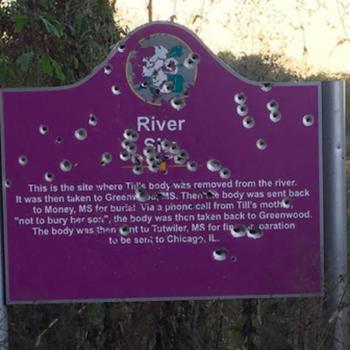“Excuse me, could you spare me a dollar?” It was a man who said this, a tired-looking man standing by the sidewalk.
“I’m sorry, I don’t have any cash on me.” I was on a walk, the kids in the stroller, and I knew there wasn’t any cash in my wallet.
“Then could you buy me something to eat?” The man gestured toward a fast food store across the street. “I’m really hungry.”
“I’m sorry,” I said, shaking my head.
All sorts of things swirled in my head as I resumed my walk. Why would he ask for fast food? Groceries are cheaper. My mom would have said “he can always go to the Salvation Army downtown.” She would have said that the reason he was out here begging is that he wanted to avoid the requirements somewhere like the Salvation Army would put on him. That he could make more money standing by the street with a sign than he could if he got a job flipping burgers, and that he was probably using the money on drugs anyway. But these feelings competed with others as well. The man looked gaunt and moved and talked slowly like he was used to hunger. He also had a sleeping bag hanging from his backpack, meaning that he was homeless. Why would someone choose that? Would someone really sleep in the park and beg passers by for food if getting a job, even a low-paying job, was an option? How would a homeless man even go about applying for a job anyway, without an address or phone number? I also knew what I’d heard from the minister of the local UU church the previous Sunday: my town has no year-round homeless shelter, only one set up temporarily and staffed by churches during the worst of the winter months. All these thoughts went though my head in the matter of only seconds, and I stopped and turned back to the man.
“We’re only a few blocks from the health food store, which is where I’m going,” I said. “I’ll buy you something there.” I waited for the man to catch up and we walked the last blocks in silence. I wasn’t sure what to say, and he likely wasn’t either. As we entered the store, his eyes lit up.
“I’ve never been in here,” he said. “This store is amazing.”
Together we picked out a bag of granola and walked back to the register. Sally began pulling organic chocolate bars off the shelves and Bobby kicked his feet in the stroller while I paid for the granola. The man took the granola and thanked me, shaking my hand warmly and with gratitude before heading out into the falling dusk.
I tell this story only because that evening gave me some things to ponder. As I finished shopping I felt guilty. Guilty that I have so much while tens of thousands of people across the country sleep on the streets. Also grateful. Grateful that I have so much when others have nothing. Somehow, gratitude and guilt became all mixed up for me. And as I thought about this, I stumbled upon two thoughts.
First, I don’t buy into some sort of grand capitalist conspiracy, but it seems to me that just like the existence of rape is convenient for complementarians and patriarchalists, even so the existence of homeless people is convenient for corporate America. What I mean is that encountering a homeless person can make someone like me, a grad student raising two children, feel wealthy beyond measure. (Remember that gratitude bit?) And as long as I feel wealthy because it could be worse – I could be living on the streets, or bankrupted by medical bills, or reduced to begging for food – I am more likely to accept the fact that the average CEO earns 300 times as much as I do. The existence of homeless people, then, may help keep the working poor from challenging the system.
Second, I began to wonder if people like Mitt Romney in some sense have to assume that the extremely poor are where they are because of their own laziness and bad choices. Why? Because otherwise the guilt at being so rich while others have absolutely nothing would surely be completely overwhelming. If I, a graduate student raising two children, feel guilty at how much I have when I encounter a homeless person, how much more guilty must a person with a private jet or an elevator for his cars feel? Believing that poor people are poor because they’re lazy and make bad choices might be the only way to stay sane and be able to actually enjoy the absolute opulence of that kind of wealth.
Third and finally, as I tried to resolve all of this in my head I realized that I really do believe that every person has the right to food, shelter, and healthcare. I grew up being taught that the only rights people have are those involving freedom from interference – the right to own guns, the right to worship freely, etc. I was taught that giving people the right to healthcare would mean forcing doctors to give treatment. In other words, you could only give someone the right to food, shelter, or healthcare by taking away someone else’s rights. But I think this phrases it incorrectly. I don’t see the onus of providing everyone with food, shelter, and healthcare as something that falls on individuals. Instead, I see it as part of a societal contract. We as a society should take care of our own. We as a society should make sure that everyone’s most basic needs are met. That homeless man I met so briefly represents our failure as a society.














